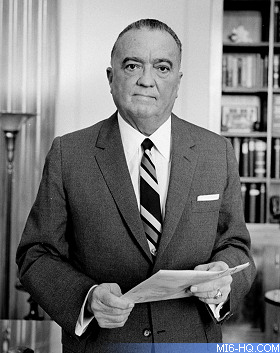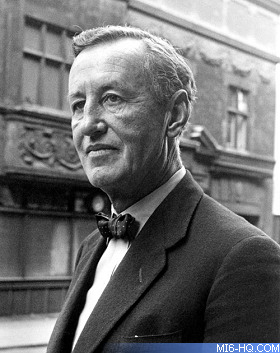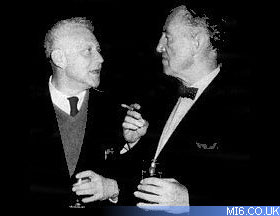Sex and Bizarre Situations
17th August 2014
Internal FBI documents have revealed that J. Edgar Hoover was worried about the character of James Bond and even investigated 'Goldfinger'
 By MI6 Staff
By MI6 Staff
"Hoover Wanted No Part of James Bond Stories" - June 24th 1980 (Jack Anderson, Ocala Star Banner)
Internal FBI documents have revealed that the late
FBI director, J. Edgar Hoover, was worried about a fictional celebrity
- James Bond.
Communist subversion may have been threatening the political power structures in the 1960s - as Hoover assured Congress it was every year at budget time - but the FBI could still find time and agents to check into the possible effects of a James Bond movie on the agency's pristine image.
An internal FBI memo to Cartha "Deke" DeLoach, one of Hoover's top assistants (and later deputy director of the FBI), dated January 1st 1964, noted that Ian Fleming's spy stories "are generally filled with beautiful women presenting themselves to (Bond) in scanty attire."

Above: FBI Director J. Edgar Hoover

Above: Ian Fleming in 1964
The startling revelation was no news to the millions at that time who had either read Fleming's novels or seen the first two Bond movies on the big screen. But is was important to the nation's top investigative agency because there were three passing references to the FBI in 'Goldfinger', whose climatic scenes involved an attack on the U.S. gold hoard at Fort Knox, and was up next for the big screen treatment.
"The type of book written by Ian Fleming is certainly not the type where we would want any mention of the FBI or portrayal of FBI agents, no matter how favourable they might look in the movie," another confidential memo said. It explained that "Fleming's stories generally center around sex and bizarre situations, and certainly are not the type with which we should want to be associated."
Evidently fearful that DeLoach and/or Hoover lived in a hopelessly sheltered environment, the writer of one memo felt it necessary to explain the facts of Fleming's life: "Our files reflect that Ian Fleming is a writer of paperback novels concerning spy stories in which his fictional character, James Bond, is the star," the memo states.

Above: Bond screenwriter Richard Maibaum with Ian Fleming.
The government officials even checked into the background of the man who was adapting 'Goldfinger' for the silver screen, Richard Maibaum, and reported: "Bureau files contain no record regarding Maibaum".
One of the 'Goldfinger' memos conceded that an FBI source "was unaware of any FBI portrayal in the movie."
Nevertheless, the memo writer recommended that "in the event the Bureau is contacted for permission to portray an FBI agent in the movie, it should be flatly declined. "
Hoover scribbled "I concur" at the bottom of the memo.
As it turned out, the FBI's fear that it would be somehow involved in a movie featuring "sex and bizarre situations" proved groundless. 007 was able to save the gold at Fort Knox with the help of only the CIA and the United States Army.
Minor portions of the text have been modified for clarity.






